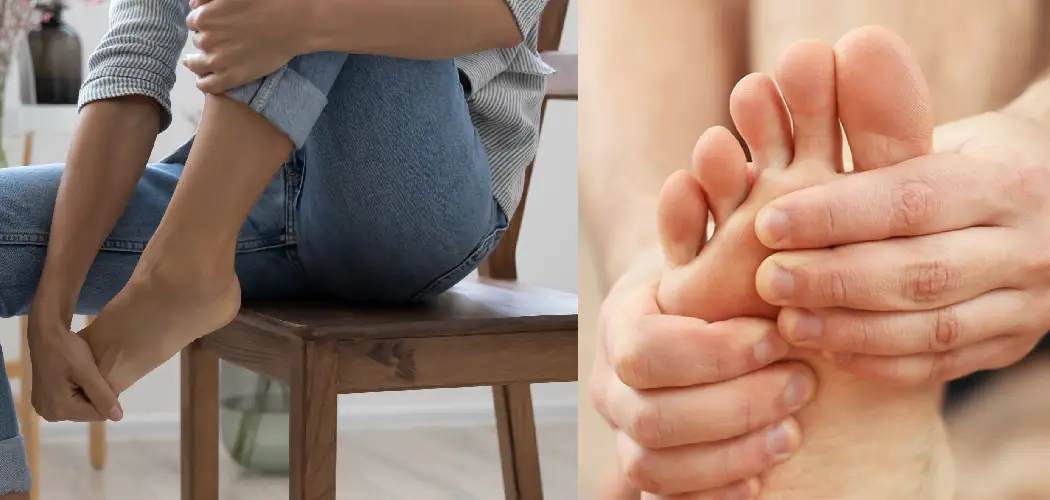Do you have problems with your feet swelling while sitting at your desk all day? You are not alone. Many people experience swollen feet, ankles, and legs due to prolonged periods of sitting. However, there are some ways that you can prevent this from happening. In this blog post, we will discuss how to prevent feet swelling while sitting at desk and offer some tips on reducing the swelling if it does occur. Read on to learn more!
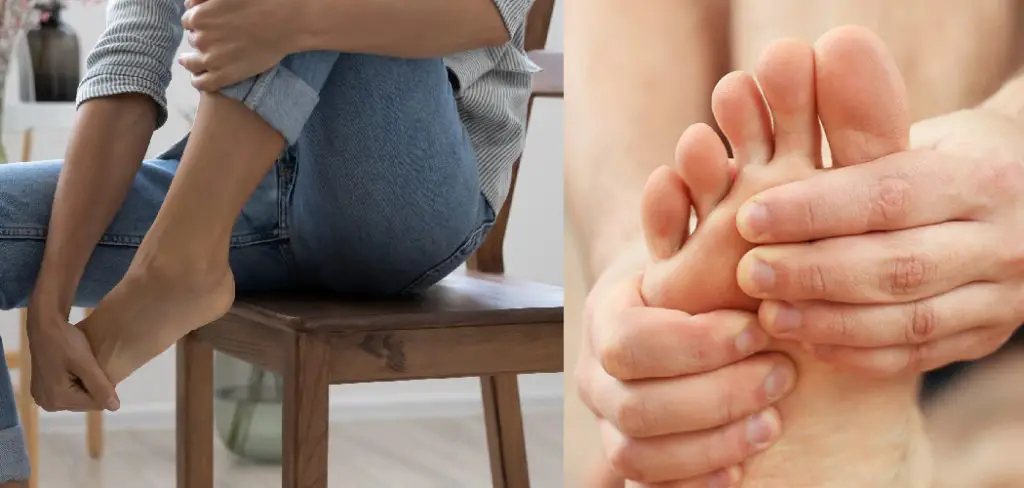
What Causes Swelling in the Feet?
A few things can cause your feet to swell while sitting at your desk. One of the most common reasons is simply the act of sitting for long periods. When you sit, your muscles are not in use, and the blood flow to your legs slows down. This can cause the fluid in your legs to build up and lead to swelling.
Another common reason for swollen feet is pregnancy. During pregnancy, the body produces more fluids, and the blood vessels dilate more. This can lead to swelling in the feet, ankles, and legs. In addition, pregnant women often have a higher body mass index (BMI), which can contribute to swelling.
Other causes of swollen feet include standing for long periods, hot weather, certain medications, and underlying medical conditions such as heart failure, kidney disease, or liver disease. Lastly, your feet may swell due to the anesthesia if you have recently had surgery.
Is Swelling in the Feet Dangerous?
In most cases, swelling in the feet is not dangerous. However, it can be uncomfortable and lead to other problems such as foot pain, blisters, and difficulty walking. If you have diabetes, monitoring your feet closely for any signs of swelling is important. Swelling can be a sign of diabetic neuropathy, which is a condition that can cause nerve damage and lead to amputation.
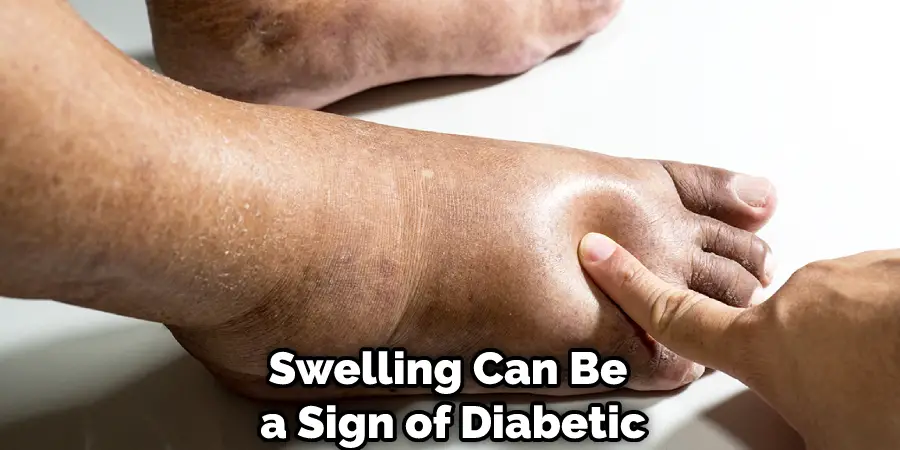
Another reason to be aware of swelling in your feet is if you experience sudden, severe, or persistent swelling. This could be a sign of a blood clot, which is a serious medical emergency. Therefore, you should seek medical attention immediately if you experience any of these symptoms.
Some Effective Ways How to Prevent Feet Swelling While Sitting at Desk
1. Keep Moving
One of the best ways to prevent foot swelling is to keep moving. If you can, take a break every 30 minutes to walk around or do some simple stretching exercises. This will help to keep the blood flowing to your legs and prevent fluid from building up. If you are pregnant, you may need to take more frequent breaks.
2. Wear Comfortable Shoes
Make sure that you are wearing comfortable shoes that are not too tight. If your shoes are too tight, they can constrict the blood vessels and cause swelling. Choose shoes that have good arch support and are made of breathable materials. Avoid high heels if possible. Wear shoes that are comfortable and offer support.
3. Prop Your Feet Up
If you can, prop your feet up on a stool or box while sitting at your desk. This will help to reduce the pressure on your feet and prevent swelling. First, put a pillow under your feet, then prop them up on the stool or box. If you can, do this for a few minutes several times a day.
You Can Check It Out Get Rid of Used Office Furniture
4. Exercise Regularly
Exercising regularly is one of the best ways to prevent foot swelling. Exercise helps to improve circulation and can reduce the risk of developing underlying medical conditions that can cause swelling. Aim to get at least 30 minutes of moderate exercise every day. If pregnant, check with your doctor before starting any new exercise routine.

5. Drink Plenty of Water
Drinking plenty of water is important for overall health, but it can also help to reduce foot swelling. When you are well-hydrated, your body can better manage the fluids in your system. Aim to drink eight glasses of water a day. You may need to drink even more if you are exercising or in a hot environment.
6. Limit Your Salt Intake
Eating too much salt can cause your body to retain water and lead to swelling feet. If you are prone to swelling, limit your salt intake to 2,000 milligrams a day. This is about one teaspoon of salt. Avoid processed foods, which are often high in salt, and season your food with herbs and spices instead. If you are on a low-sodium diet, check with your doctor before making any changes.
7. Wear Compression Socks or Stockings
Compression socks or stockings can help to reduce foot swelling by applying gentle pressure to your legs. They are especially helpful if you are standing or sitting for long periods of time. You can buy compression socks or stockings online or at most drugstores. If you are pregnant, talk to your doctor before wearing compression socks.
8. Avoid Standing for Long Periods of Time
If possible, avoid standing for long periods of time. If you must stand, take a break every few minutes to sit down and rest your feet. When standing, shift your weight from one foot to the other and avoid crossing your legs. Avoid standing for long periods if you are pregnant, especially in the third trimester.
9. Elevate Your Legs When Possible
If your legs are swelling, Elevate them above the level of your heart as often as possible. This will help to reduce the swelling and prevent further damage. When lying down, prop your legs up on pillows. If you are sitting, put your feet up on a stool or box. Try to do this for at least 15 minutes a day.
10. Wear Loose-fitting Clothing
Wearing loose-fitting clothing can help to reduce foot swelling. Tight clothing, especially jeans or pants, can constrict the blood vessels and cause swelling. Choose clothing that is made of breathable materials and avoid anything that is tight or constricting. If you are pregnant, wear loose-fitting clothing and avoid anything that puts pressure on your stomach.
11. Avoid High Heels
If possible, avoid wearing high heels. High heels can cause foot swelling and increase the risk of falling. If you must wear them, choose a low heel and avoid wearing them for long periods of time. Sometimes, you may need to wear special shoes or inserts to protect your feet from the pressure of high heels.
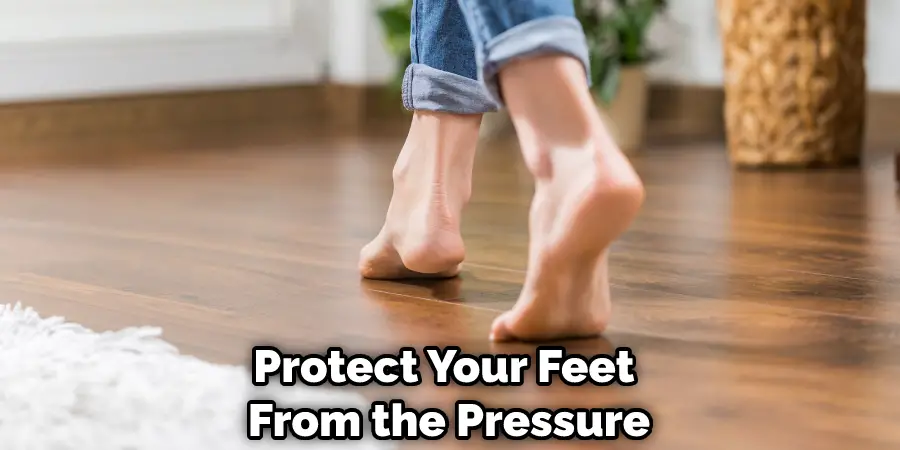
12. Manage Your Weight
Being overweight or obese can cause foot swelling. This is because the extra weight puts pressure on your legs and feet. If you are overweight, try to lose weight gradually. Losing too much weight too quickly can actually make feet swelling worse. If you are pregnant, talk to your doctor about how much weight you should gain during pregnancy.
Tips and Warnings on How to Prevent Feet Swelling While Sitting at Desk
Tips:
- Get up and move around every 20-30 minutes to keep the blood flowing.
- Wear comfortable shoes that do not constrict your feet.
- Elevate your feet when possible to reduce swelling.
- Exercise regularly to maintain good circulation.
- Be sure to drink plenty of fluids, especially water, to avoid dehydration.
Warnings:
- If you have diabetes or other medical conditions that cause poor circulation, consult your doctor before taking any steps to prevent foot swelling.
- If you experience severe pain, redness, or warmth in your feet, seek medical attention immediately. These could be signs of a more serious condition.
- Do not wear tight shoes or socks if you are prone to foot swelling. This can worsen the condition.
- Don’t smoke. Smoking constricts blood vessels and can contribute to poor circulation.
- If you are overweight, lose weight. Excess pounds put a strain on your circulatory system.
How Long Does It Take for Swelling to Go Down?
The amount of time it takes for swelling to go down depends on the cause. Often, swelling will go down within a few days. However, if an injury causes swelling, it may take longer to resolve. In some cases, swelling can be a chronic problem. If you have chronic swelling, talk to your doctor about treatment options.
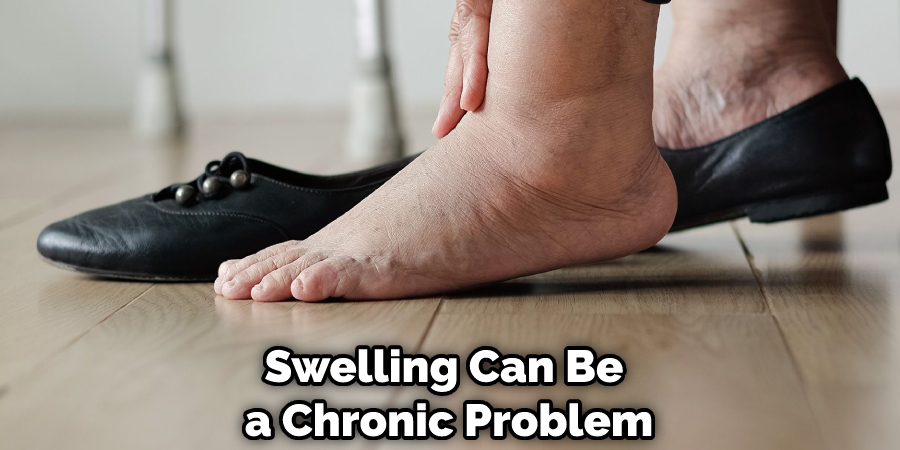
Conclusion
So there you have it – 12 tips on how to prevent feet swelling while sitting at desk. By following these tips, you can help to reduce the risk of developing foot problems. If you are already experiencing foot swelling, these tips can help to reduce the symptoms. Remember to consult your doctor if you have any concerns about foot swelling. We hope you found this information helpful!
You Can Check It Out To Request an Ergonomic Chair at Work

